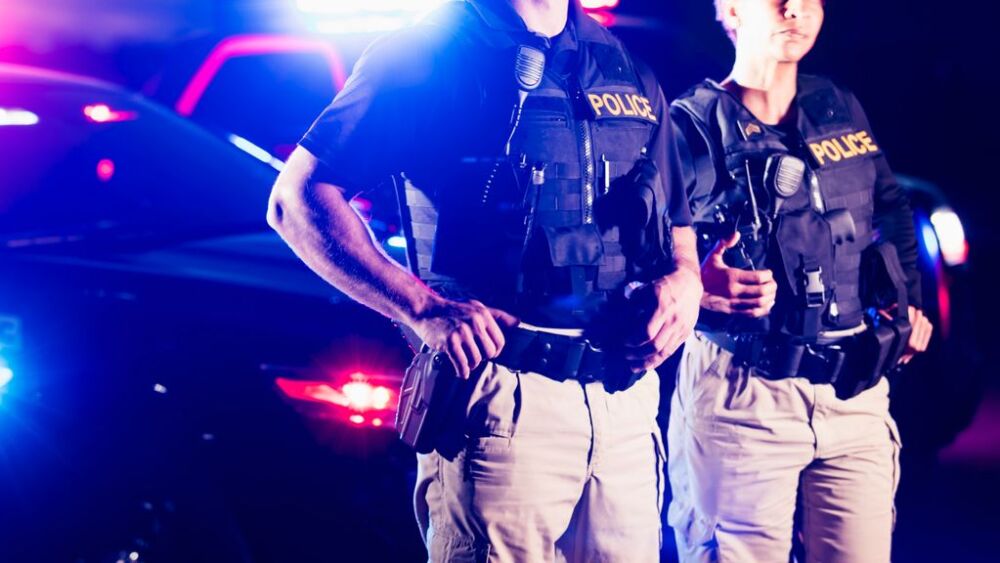As a new officer I aspired to be the best police officer I could be, so I hung onto every word spoken to me by senior officers and police trainers. Most of the things I learned from them were priceless pearls of wisdom and witticisms that helped me navigate my career successfully.
However, not everything I heard my trainers and senior officers say proved to be valuable, or even true. Here are 10 falsehoods I have heard in the past that I hoped are not getting passed on to another generation of young recruits who may choose to believe them.
1. “Forget everything you ever learned. Now you’re in the real world.”
There is much to be learned in the real world, but prior training helps officers meet and defeat the challenges of the real world. A much better approach is to tell a new officer, “Now it’s time to take everything you have learned and apply it in the real world.”
2. “Martial arts don’t work on the street.”
I wonder to this day why a number of police instructors and senior officers feel the need to make this statement. How could anyone say that techniques found in Tae Kwon do, Judo, Kung Fu, Jiu-Jitsu, Aikido, Hapkido, or Krav Maga, to name a few, would not work on the street? I am glad I didn’t buy into this statement, or I would not be here right now.
3. “Cops don’t wrestle.”
What a crock! Yes, they do!
As a police officer, I discovered that the countless hours of practice and repetition of wrestling techniques gave me the skills to maintain control of a resistive suspect until I could transition into a compliance technique to end the resistance.
I encouraged the former wrestlers I trained to utilize their treasure trove of skills acquired in wrestling to do the same and they did.
Whether an officer acquires wrestling skills as a young competitive wrestler, or in a Jiu-Jitsu class, they will prove vital often.
4. “If you are on the ground, you are losing.”
Whether you are on the ground, or on your feet the skills you possess, your physical conditioning and your will to prevail determine who wins the struggle.
5. “That sh-t don’t work on the street.”
The cynics who were talking about police control techniques here were partially right. The fact is, any person, who says “That sh-t don’t work on the street,” will never train to the level needed to become proficient enough to use those techniques on the street.
However, I personally can vouch for these techniques, because they worked for me. They even worked better when the officers I worked with were similarly trained and we gelled as a team.
6. “It’s us versus them.”
Officers who have concluded this have allowed the tunnel vision that naturally can occur in law enforcement to shape their perspective. When an officer works a tough shift, or beat, after a while it really can feel like “It’s us against them.” But the truth is, most people support the police. They are just not as loud and in your face as the people causing the trouble that you are dispatched to.
7. “You get paid the same for doing nothing as you do for doing something.”
The officers who made this statement seemed to me to be miserable and dissatisfied throughout their careers.
I was taught by my grandfather that my family had a long history of believing that a job worth doing is worth doing well. He said we have a heritage of becoming very good at our chosen profession and he challenged me to do the same.
Now that I am retired, I am glad I listened to my grandfather and not to the “RODs” (retired on duty) who said this. There is great satisfaction in a job well done. Especially one as important as law enforcement.
8. “You’re not a social worker.”
Many officers do not want to admit this, but even if we are not social workers, we sure do a lot of social work. Many a call I was dispatched to over the years was not criminal in nature. Much of what I was dispatched to was social work.
Like it or not up, until very recently, we were the only social workers on call 24/7. Recently, however, many agencies are having their officers team up with social workers to answer calls that are indeed “social work.”
9. “You have to talk down to people.”
Find one person in the world who wants to be talked down to. I discovered most people, whether they, lived in a mansion or on the street, responded better if they were treated with dignity and respect.
10: “Relax. You can’t make a difference out there.”
Wrong again!
This is probably the most inaccurate statement of all. Every night you hit the streets you make a difference. You stop drunk drivers from killing families, you stop burglars from breaking into homes and you stop rapists from terrorizing their communities – at least for a while.
Once in a while, you might even save a drowning dog, rescue an endangered person from their violent spouse, or even pull a pilot out of a crashed plane just before a train hits it. Watch this!
Wow!
Conclusion
As a trainer, or senior officer, wouldn’t you rather be a person who encourages young officers to long to aspire, rather than long to retire?
I thought so. Now, stay safe stay strong, stay positive and be careful out there.



